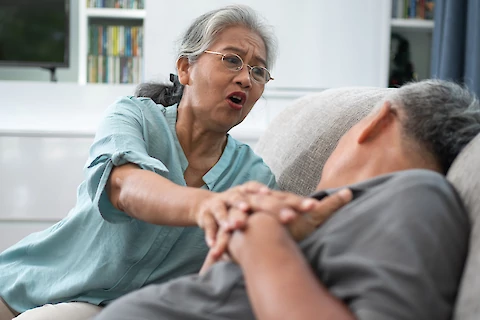
Caring for a loved one is a meaningful and rewarding experience, but it also comes with its share of challenges. Compassion is at the heart of caregiving, yet compassion fatigue and burnout are all too common among those providing care for others.
These feelings can arise when caregiving duties become overwhelming. If not addressed, they can erode the strong foundation of patience and empathy that caregiving requires. Here are some signs you're starting to lose compassion during caregiving for a senior loved one.
1. Feeling Emotionally Drained
Caregivers often experience a range of emotions as they support their loved ones. It's normal to feel emotionally drained at times, but if you're constantly feeling exhausted or overwhelmed, it may be an early sign that you're losing compassion. Difficulty in experiencing joy or happiness can also indicate that your emotional reserves are running low.
2. Displaying Anger and Irritation
Increased irritability or anger is another sign that your patience and compassion are dwindling. You may find yourself snapping at the person you're caring for or feeling resentful towards your caregiving duties. It's important to recognize these emotions and try to understand their root cause.
3. Neglecting Self-Care
Neglecting self-care is a common issue among caregivers, but it can be a warning sign that you’re about to lose compassion during caregiving. Skipping meals, exercise, or personal hygiene can indicate that you're not prioritizing your physical or emotional needs. This can impact your ability to provide compassionate care.
4. Feeling Overwhelmed
Difficulty in making decisions and increased feelings of being overwhelmed by tasks can also signal that you need to reevaluate your caregiving situation. Procrastinating or avoiding essential tasks and feeling overwhelmed by simple decisions are signs that your stress levels are affecting your ability to provide quality care.
5. Isolating Yourself From Others
Social isolation is common among caregivers, but it can be a sign that you're losing compassion. Avoiding friends or family members and losing interest in hobbies or activities you once enjoyed can lead to feelings of loneliness and disconnection.
6. Experiencing Certain Physical Symptoms
Physical symptoms, such as headaches, muscle tension, or digestive issues, can indicate that the stress of caregiving is taking a toll on your body. Difficulty sleeping or changes in appetite are signs that your overall well-being is being affected.
What to Do if You Think You Have Compassion Fatigue
Acknowledging these signs and your feelings is the first step towards addressing your dwindling compassion. Reach out for support by talking to friends, family, or a therapist about your feelings, and consider joining a caregiver support group to share experiences and advice. Setting clear boundaries, establishing a schedule, and communicating your limits and needs to the person you're caring for are essential.
Remember to prioritize self-care by making time for hobbies, exercise, and relaxation. You want to maintain your sleep, nutrition, and personal hygiene to ensure you can provide the best possible care. If you need a break, consider hiring respite care services. A professional caregiver can provide temporary relief, allowing you to recharge and focus on your well-being.
Senior Helpers Exton Provides Respite Care
Recognizing and addressing compassion fatigue is crucial for your well-being and ability to provide compassionate care. Prioritizing your own needs anseekingek support when necessary can help prevent you from reaching a point where you lose compassion during caregiving. If you live in West Chester, Coatesville, Downingtown, Kennett Square, Exton, or Chester County and need support or respite care, contact Senior Helpers Exton for compassionate, professional assistance.